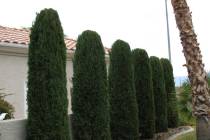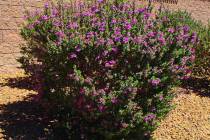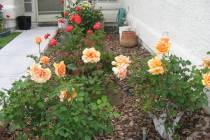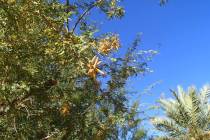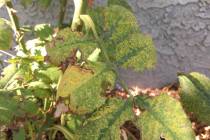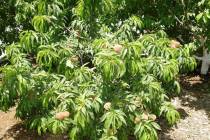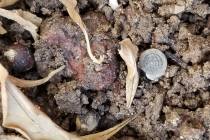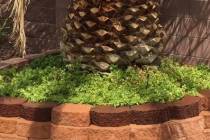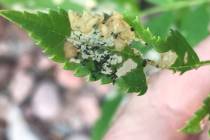There are two strikes against citrus growing well in the Mojave Desert. The first is their variable tolerance to freezing temperatures during the winter. The second strike is that oftentimes citrus trees flower in early spring when very light freezing temperatures are possible. Tolerance to these freezing temperatures is practically nil.
Bob Morris

Bob Morris is a horticulture expert living in Las Vegas and professor emeritus for the University of Nevada. Visit his blog at xtremehorticulture.blogspot.com. Send questions to Extremehort@aol.com.
Whiteflies are a bad insect problem for any plant. Their populations grow so quickly that small numbers lead to large numbers very fast. For that reason, it’s important to get them under control early, as soon as you see them.
Gardeners who are new to Southern Nevada might want to check out resource books written for the Las Vegas climate or secondly Tucson, Arizona, and lastly the desert Southwest.
You can typically remove about one-third of the total tree roots with no problem. This is done sometimes when trenches are cut in the soil for burying irrigation lines. But when roots are cut, about one-third of the top should be removed as well.
Bagged steer manure was used in the past as a topdressing for lawns when overseeding. It was smelly but it worked well. Now there are commercial topdressing products available.
Spraying insecticides make mite problems more likely on susceptible plants such as Italian cypress. Miticides, unlike insecticides, are less likely to cause mite problems later.
The ground is still warm enough to plant. The magic number for landscape plant root growth is about 50 degrees.
The annual South Valley Rose Show will be held Nov. 9 at the University of Nevada Cooperative Extension offices on the corner of Windmill Lane and Paradise Road. Rosarians will be present to answer questions about growing roses in our hot desert climate and poor soils from 1 to 4 p.m.
Trees grown in containers are more finicky than those planted in the ground because the roots don’t have access to as much soil mass. The limited soil volume in containers makes watering and applying fertilizers more complicated; the tree runs out of both more quickly.
You don’t need an airless sprayer for flawless results when painting trim. All you need is a steady hand, a quality brush and patience.
Rock placed on top of the soil contributes to a soil problem, but wood chips won’t. Spraying the plants with iron fertilizer might be a temporary fix but not a long-term one.
My Saturday, four-week class, “Fix Your Landscape” will start Oct. 26 in North Las Vegas. This weekly landscaping class will show you design tricks that save water and electricity, plant selections that work, planting methods that are successful and how to fix problems, and irrigation installation and how to water.
Snails and slugs love where it’s wet. They also love food. Food and moisture make a perfect breeding area.
Landscape microclimates change something about the outside: the air temperature, wind speed, humidity, noise level or may address privacy issues.
Skeletonizer insect damage is common to Tecoma in warmer parts of the Southwest. It’s feeding damage by the young — or larvae — of a moth given the common name Tecoma leaf tier skeletonizer.













